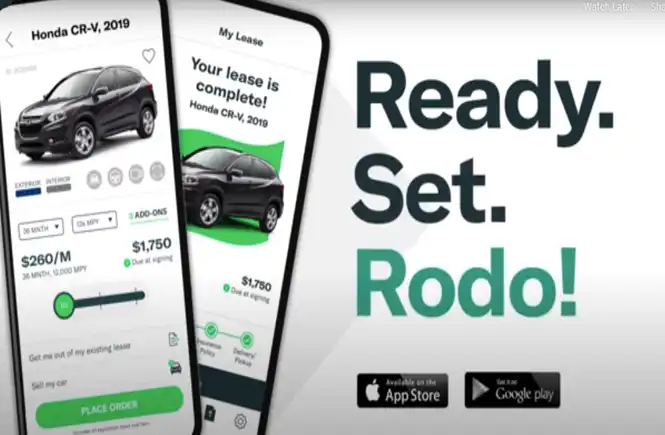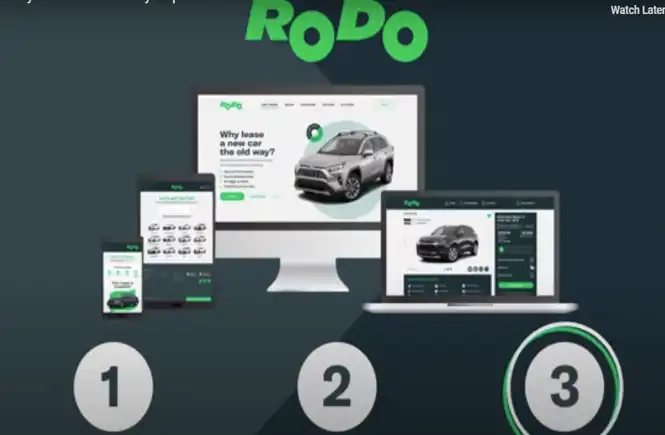Selling a car can be a complex and overwhelming process, especially when it comes to navigating the legalities involved. The General Data Protection Regulation (GDPR) implemented in the European Union has significantly impacted the way personal data is handled, including during car sales. In Poland, GDPR is referred to as RODO (Rozporządzenie Ogólne o Ochronie Danych, in English: General Data Protection Regulation).
This article aims to provide an in-depth understanding of how to sell a car while adhering to RODO guidelines, ensuring compliance, and safeguarding personal data throughout the transaction.
Understanding RODO Regulations
RODO regulations are designed to protect the privacy and personal data of individuals. When selling a car, it is crucial to familiarize yourself with these regulations to avoid any legal complications. RODO covers various aspects of data protection, including consent, data storage, and data processing.
Preparing Your Car for Sale
Before selling your car, it is essential to ensure that it is in good condition and all necessary paperwork is in order. This section will guide you through the process of preparing your car for sale, including cleaning, maintenance, and gathering relevant documentation such as service history, ownership documents, and maintenance receipts.

Assessing the Market Value
Determining the appropriate selling price for your car is vital to attract potential buyers. This section will discuss different methods of assessing the market value of your vehicle, including online research, consulting with experts, and considering factors such as mileage, condition, age, and demand.
Advertising and Promoting Your Car
Effectively marketing your car is essential to attract potential buyers. This section will explore various advertising platforms, both online and offline, and provide tips on creating compelling advertisements, including high-quality photographs, detailed descriptions, and accurate specifications. It will also cover the importance of respecting privacy when sharing personal information in the advertisements.

Managing Inquiries and Negotiating the Sale
Once your car is listed for sale, you will receive inquiries from potential buyers. This section will provide guidance on managing inquiries, responding to questions, and negotiating the sale price. It will emphasize the importance of handling personal data with care and obtaining explicit consent when sharing it with potential buyers.
Completing the Sale and Transfer of Ownership
Finalizing the sale and transferring ownership is a critical step in the car-selling process. This section will outline the necessary steps involved, including drafting a sales agreement, arranging a test drive, conducting a vehicle inspection, and transferring the ownership documentation. It will also highlight the importance of securely handling personal data during these transactions.
Understanding Data Protection Rights of Buyers
Buyers also have data protection rights that must be respected during the car sales process. This section will discuss the rights of buyers, such as accessing their personal data, rectifying inaccuracies, and withdrawing consent. It will explain how sellers should respond to buyer requests in accordance with RODO regulations.
Disposing of Personal Data After the Sale
Once the sale is complete, it is essential to dispose of any personal data collected during the process. This section will provide guidelines on securely deleting or anonymizing personal data in compliance with RODO regulations. It will also discuss the importance of maintaining data protection practices beyond the sale to safeguard the privacy of the buyer.
Ensuring Compliance and Avoiding Penalties
Non-compliance with RODO regulations can result in severe penalties. This section will highlight the consequences of failing to adhere to data protection requirements during car sales. It will also provide recommendations and best practices to ensure compliance, such as obtaining explicit consent, implementing security measures, and staying informed about updates to data protection laws.
Seeking Professional Advice
If you are unsure about any aspect of selling your car while complying with RODO regulations, seeking professional advice can help navigate the complexities involved. This section will discuss the benefits of consulting with legal experts or data protection officers to ensure a smooth and legally compliant car-selling process.
How RODO works?
The process of selling your car through RODO involves several steps to ensure a smooth and legally compliant transaction. Here’s a breakdown of how it works:

1.Photo Submission:
To initiate the car selling process, you need to provide interior and exterior photos of your car. This includes capturing the four sides of the vehicle, the front and back seats, the odometer reading, and any existing interior or exterior damage. These photos will help assess the condition of the car and determine its value.
2.Appraisal Review:
Once you have submitted the required photos, the car-selling platform or trader will review them along with the initial quote provided. They will assess the car’s condition, taking into consideration factors such as mileage, age, and any visible damage. The appraisal review will help determine the final price offer for your vehicle.
3.Submit Documents:
As part of the process, you may be required to provide additional paperwork to verify your identity and ownership of the car. This typically includes your driver’s license and car registration documents. These documents are necessary to ensure a legal transfer of ownership and comply with RODO regulations.
4.Finalize the Order:
After the appraisal review and document verification, the trader manager will confirm the final quote for your car. They will also handle any outstanding paperwork required for the sale, ensuring that all legal requirements are met. This step involves finalizing the terms of the transaction and preparing the necessary documentation for the transfer of ownership.
5.Schedule Pickup and Get Paid:
Once the order is finalized, you will need to coordinate the pickup of your car. You can provide the preferred time and date for the pickup to the trader manager. Additionally, you will need to specify how you would like to receive your payment. Common options include bank transfer, cash, or a certified check. The chosen method will depend on your preference and the policies of the car-selling platform.
It’s important to note that throughout the entire process, the car-selling platform or trader must adhere to RODO regulations to protect the privacy and personal data involved. They should handle any personal information provided by you securely and in compliance with data protection laws.
By following these steps, you can sell your car through RODO while ensuring a fair and legally compliant transaction. It’s always recommended to carefully review the terms and conditions of the car-selling platform or trader to ensure a transparent and secure selling experience.
More Information
| RODO | Contact Information |
|---|---|
| Address | 104 W 40th St, 11th Floor New York, NY 10018 |
| Phone Number | 877-322-RODO (877-322-7636) |
| General Inquiries Email | info@rodo.com |
| Dealership Inquiries Email | dealerdesk@rodo.com |
| Monday – Thursday | 9AM – 7PM EST |
| Friday | 9AM – 5PM EST |
| Saturday | Closed |
| Sunday | 11AM – 5PM EST |
FAQ (Frequently Asked Questions):
Can I sell my car without obtaining consent from the buyer to process their personal data?
Answer: No, it is essential to obtain explicit consent from the buyer to process their personal data in compliance with RODO regulations.
What personal data should I collect from potential buyers during the sales process?
Answer: Only collect the necessary personal data required for the sale, such as the buyer’s name, contact information, and proof of identification.
How long can I retain personal data collected during the car sales process?
Answer: You should only retain personal data for as long as necessary to complete the sale and comply with legal obligations. Once the sale is finalized, personal data should be securely deleted or anonymized.
Can I share the buyer’s personal data with third parties, such as finance companies or insurance providers?
Answer: Sharing personal data with third parties is permissible only if you have obtained explicit consent from the buyer or if it is required by law.
What steps should I take to protect personal data during test drives?
Answer: Before allowing a potential buyer to test drive your car, ensure that any personal data, such as registration documents or insurance information, is securely stored or removed from the vehicle.
How can I ensure compliance with RODO regulations when selling my car privately?
Answer: To ensure compliance, obtain explicit consent, handle personal data securely, dispose of data appropriately after the sale, and stay informed about any updates or changes to data protection laws.
Conclusion:
Selling a car while adhering to RODO regulations is crucial for both the seller and the buyer. By understanding the legal obligations, obtaining consent, handling personal data securely, and following best practices, sellers can navigate the car-selling process confidently and avoid potential penalties.
Remember, seeking professional advice when needed can provide additional guidance and ensure a legally compliant transaction that respects the privacy and data protection rights of all parties involved.
